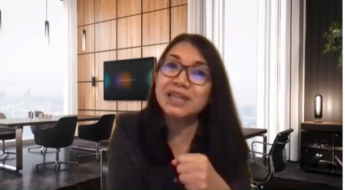Asia Regional: Challenges and Solutions for Democracy Under the Pandemic
Discussion date: June 9 and 10, 2021
Partner: Taiwan Foundation for Democracy
The pursuit of democracy in Asia has seen many setbacks over the past few years. Burma, Thailand, and Pakistan are grappling with the enduring legacies of military domination in politics; Sri Lanka, Bangladesh, and the Philippines, are backsliding towards illiberalism and populism; and democratic transitions in the region, particularly in Malaysia and Burma, have been derailed. This regional event allowed civil society activists from across Asia to share strategies for defending democratic norms and institutions as social and political liberties deteriorated in the Covid era. The discussion was jointly organized with the Taiwan Foundation for Democracy.
 The first session focused on the challenges that countries have faced during the pandemic. Sook Jong Lee of the East Asia Institute (South Korea) opened the discussion arguing that “democracy and inclusive governance tend to respond better to crises.” The panelists all mentioned that democratic challenges existed in the region before Covid; however, the pandemic accelerated and exacerbated backsliding measures. Anthony Esquerra, a journalist from the Philippines, commented that lockdowns have restricted freedoms in the Philippines, including freedom of expression and freedom of assembly. Swee Seng Yap of Bersih 2.0 in Malaysia also recounted how the state of emergency created a lack of oversight of government in Malaysia. Dr. I-Chung Lai of the Prospect Foundation in Taiwan said “the pandemic has generally enhanced state power, which has the inherent tendency to take away or disregard individual freedoms or individual rights.” He pointed out that benefits of democracy can be seen, however, in some cases of Covid management, such as Taiwan’s transparent policies.
The first session focused on the challenges that countries have faced during the pandemic. Sook Jong Lee of the East Asia Institute (South Korea) opened the discussion arguing that “democracy and inclusive governance tend to respond better to crises.” The panelists all mentioned that democratic challenges existed in the region before Covid; however, the pandemic accelerated and exacerbated backsliding measures. Anthony Esquerra, a journalist from the Philippines, commented that lockdowns have restricted freedoms in the Philippines, including freedom of expression and freedom of assembly. Swee Seng Yap of Bersih 2.0 in Malaysia also recounted how the state of emergency created a lack of oversight of government in Malaysia. Dr. I-Chung Lai of the Prospect Foundation in Taiwan said “the pandemic has generally enhanced state power, which has the inherent tendency to take away or disregard individual freedoms or individual rights.” He pointed out that benefits of democracy can be seen, however, in some cases of Covid management, such as Taiwan’s transparent policies.
 The second session looked to provide some solutions to challenges that democracies face in the region. Tanya Hamada of H-Camp Consultancy in the Philippines opened the discussion reminding everyone that politics is always an element of the process of democratic transitions. She noted “the opposing forces of democracy have taken this framework [of democratic politics] and turned it on its head. So now they have learned how to use democratic politics to subvert good governance, to demobilize people, and to enable their grab of power.” Maiko Ichichara of Hitotsubashi University (Japan) asserted that, “We [democrats] must continue to identify what is the scientific and objective truth, and continue in speech and action to support the norms and institutions of democracy. While doing so, however, we must refrain from demonizing the other side. We should adopt a principled attitude to cooperate with those on the other side where we can.”
The second session looked to provide some solutions to challenges that democracies face in the region. Tanya Hamada of H-Camp Consultancy in the Philippines opened the discussion reminding everyone that politics is always an element of the process of democratic transitions. She noted “the opposing forces of democracy have taken this framework [of democratic politics] and turned it on its head. So now they have learned how to use democratic politics to subvert good governance, to demobilize people, and to enable their grab of power.” Maiko Ichichara of Hitotsubashi University (Japan) asserted that, “We [democrats] must continue to identify what is the scientific and objective truth, and continue in speech and action to support the norms and institutions of democracy. While doing so, however, we must refrain from demonizing the other side. We should adopt a principled attitude to cooperate with those on the other side where we can.”
